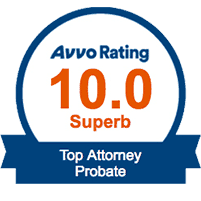As a vibrant hub of education and community in northern Illinois, DeKalb is a city of hardworking individuals and families. When residents of DeKalb face serious legal challenges—from the emotional turmoil of a divorce to the complexities of a disputed estate or the urgent need to protect a vulnerable senior—they deserve dedicated, skilled, and effective legal representation.
The Law Offices of Anthony R. Scifo provides top-tier legal advocacy to the DeKalb community across a comprehensive range of critical practice areas. We have a deep understanding of the local DeKalb County court system and are committed to protecting our clients’ rights and futures with integrity and tenacity. If you need an experienced lawyer in DeKalb, IL, call our office today for a confidential consultation at 847-628-8311.

Your DeKalb Family Law Advocates
Family law matters are deeply personal and require a legal approach that is both compassionate toward our clients and firm in the courtroom. We guide DeKalb families through these challenging transitions with a clear focus on achieving fair and lasting resolutions.
DeKalb Divorce & Mediation
Our firm expertly manages all facets of divorce and legal separation. We are highly skilled in handling issues such as the division of property, allocation of spousal support (alimony), and the negotiation of detailed settlement agreements. For clients who prefer a non-adversarial process, we offer skilled mediation services, providing a private and cooperative forum to resolve disputes amicably.
Protecting Children’s Best Interests
When children are involved in a family law case, their welfare is our highest priority. We provide focused counsel on the allocation of parental responsibilities (custody), the creation of practical and stable parenting time schedules, and the accurate calculation of child support to ensure your children are protected and supported.
Staunch Protection for Seniors with Elder Law Litigation
Our firm is a fierce defender of the rights and dignity of senior citizens. When an elderly resident of DeKalb is targeted by those who would exploit them, we provide the immediate and powerful legal response necessary to stop the abuse and seek justice.
Guardianship and Incapacity Proceedings
We represent families in the DeKalb County court system to establish guardianship for adults who have become incapacitated and can no longer make safe decisions for themselves. We also handle contested guardianships to ensure the person appointed is trustworthy and capable of protecting the vulnerable adult.
Fighting Financial Exploitation
We take swift legal action against individuals who abuse their position of trust, whether it’s a caregiver stealing funds or an agent misusing a Power of Attorney. Our experience in tracing and reclaiming stolen assets is crucial to restoring our clients’ financial security and peace of mind.
Facing a legal battle in DeKalb? Get proven advocacy from a firm that knows the local courts.
Call The Law Offices of Anthony R. Scifo at 847-628-8311 for a confidential consultation.
Resolving Complex Probate & Estate Disputes in DeKalb
A dispute over a loved one’s estate can cause deep family rifts and financial uncertainty. Our probate litigation team is highly skilled at navigating these sensitive disputes in the DeKalb County courts.
Will Contests and Estate Claims
Our lawyers represent clients in will contests, fighting to invalidate wills that were procured by undue influence, fraud, or a lack of mental capacity. We also manage all aspects of claim litigation, resolving disputes over debts owed to or by the estate.
Asset Recovery & Specialized Litigation
Our firm is highly proficient at using powerful legal tools like citation proceedings to launch an asset recovery investigation and reclaim stolen property. In the most tragic cases, we are prepared to use the Illinois Slayer Statute to prevent a killer from inheriting from their victim.
Guidance for Executors and Trustees
If you have been named as an executor of a will or trustee of a trust in DeKalb, we provide the indispensable legal counsel needed to understand your fiduciary duties, navigate the court process, and protect yourself from personal liability.
Why DeKalb Residents Choose The Law Offices of Anthony R. Scifo
Your choice of attorney is a critical one. Anthony R. Scifo’s extensive experience as a trial lawyer and as a court-appointed Guardian ad Litem in DeKalb County gives our firm a unique and powerful perspective in complex family and probate matters. Our deep familiarity with the procedures of the DeKalb County Courthouse in Sycamore provides a distinct advantage to our clients. We are committed to serving the DeKalb community with the highest level of legal skill and dedication.
Frequently Asked Questions for DeKalb, IL Residents
Where are family law and probate cases for DeKalb residents heard?
- Legal cases for residents of DeKalb and all of DeKalb County are handled at the DeKalb County Courthouse, located at 133 W State St, Sycamore, IL. Our attorneys practice regularly in this courthouse and are intimately familiar with its operations and the 23rd Judicial Circuit.
What is the first step if I suspect a loved one’s will is fraudulent?
- The absolute first step is to contact an experienced probate litigation attorney immediately. There is a very strict six-month deadline from the date a will is admitted to probate to file a contest. Delaying can permanently cost you your right to challenge the will.
Are there local resources for seniors in the DeKalb area?
- Yes, the Voluntary Action Center & Meals on Wheels provides a variety of services and resources for senior citizens throughout DeKalb County. For specific legal crises involving abuse or exploitation, however, consulting with a dedicated elder law attorney is a critical step to protect your loved one and their assets.




